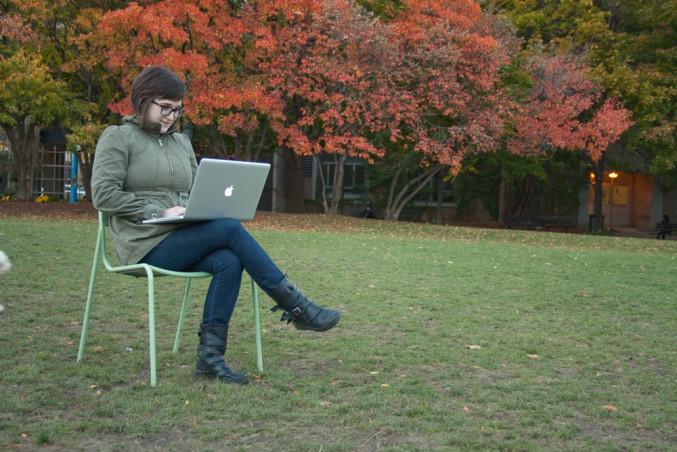Ryerson recently released its annual strategic mandate agreement, which proposed its intention to add 600 online courses over the next five years. But what does that mean for the students?
By Daksha Rangan
With an air of curiosity, Ryerson President Sheldon Levy boots up his computer and logs into iTunes U.
He wants to see for himself what a great online course looks like, so he enrolls in one on genetics. The resulting experience, he says, was positive, but something was missing.
“The content was excellent,” Levy says. “But do I think that it was good enough for a course? No way, because I had no one to talk to.
I didn’t have a student, I didn’t have a faculty member.” Levy says that the content should have included class time, but that setback isn’t going to get in the way of Levy’s effort to make Ryerson a leader in online learning.
On Sept. 28 Ryerson University proposed an expansion of the school’s current online course options by 600 credits over the next five years in a strategic mandate agreement (SMA), addressed to Glen Murray, Minister of Training, Colleges and Universities.
The SMA requests $2 million annually for five years to enable an increase to 120 online courses created per year, twice the current number.
It would also enable an increase in full degree programs offered online.
Ryerson currently offers 282 degree credit programs, 186 non-credit courses, three degree programs, and 23 certificates fully online, five blended degree programs and 20 blended certificates.
The goal of the expansion is to improve accessibility and provide pathways for the increasingly large number of applicants and to provide cost-effective development for the community, according to the mandate.
Gerald Mak, a fourth-year business technology management student and member of the Ryerson Students’ Union (RSU) board of directors, has noticed the increase in student population first hand.
Mak noted enrolment in the Ted Rogers School of Management (TRSM) has shot up between four and six per cent in the past year.
“The TRSM building has never seen so many students sitting on the floors, in the hallways,” he says. “I barely go in because it’s so packed.” Third-year fashion communication student Victoria Sinko says she would appreciate a broader variety of courses available at the Chang School of Continuing Education when pursuing an online credit.
However, Sinko added the change could affect Ryerson’s reputation as an experiential university.
“Practical learning [is] what we’re known for,” Sinko says. “If we offer all these online courses and then we have programs like architecture of fashion, which are all in-studio, hands-on based work, what happens to the reputation of my program if these all become online courses? Are we focusing on hands-on, or are we focusing on online?” Ryerson is not, however, intent on fully online credits like those currently run through the Chang School. Instead, the focus will be on multi-purpose courses that couple strong, accessible online content with practical interaction.
Keith Hampson, a consultant for the Alton Road Group, and a former head of the online team at Ryerson, says development of such hybrid courses would not be a radical departure for the school.
The Toronto-based Alton Road Group specializes in the study of higher and digital education.
“If it’s hybrid, that isn’t a radical departure for traditional brick and mortar institutions,” he says.
“If you do need to go fully online, and you do want to do it well, then you have to change [the structure of content delivery] in very significant ways, and that’s a very big distinction.” Mak adds that online learning is a good way of making education accessible to students sooner, without the need to construct and further develop buildings on the campus’s already restricted space.
“The number one benefit of online is still convenience,” says Hampson. “It’s not about learning styles, but by and large it’s about convenience … and it’s going to serve that need, no matter how [universities] do it.” Despite the convenience of online education, some students are concerned about a possible decline in the quality of education.
“Our issue with online courses is that students are going to be paying the same high unaffordable tuition fees and getting a lower quality education for it,” says Melissa Palermo, vice-president education at the RSU.
“A high-quality affordable education, with learning in the classroom, learning from our peers, interacting with our professors is really the best university experience that a student can achieve.”
With files from Sean Wetselaar










Leave a Reply